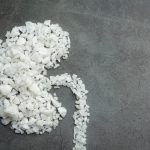Kidney stones are small, hard deposits that form in the kidneys and can cause excruciating pain as they pass through the urinary tract. While they may seem like mere pebbles, the agony they bring can be overwhelming. In this comprehensive guide, we delve into the world of kidney stones, exploring their causes, symptoms, treatment options, and most importantly, how to prevent them.
Understanding Kidney Stones
Kidney stones are solid crystals made up of minerals and salts that accumulate in the kidneys. They can vary in size, from as small as a grain of sand to as large as a golf ball, and are often composed of calcium, oxalate, uric acid, or cystine.
Causes and Risk Factors
Several factors contribute to the formation of kidney stones:
- Dehydration: Insufficient fluid intake can lead to concentrated urine, making it easier for minerals to crystallize and form stones.
- Dietary Habits: Consuming a diet high in sodium, oxalate (found in certain foods like spinach and chocolate), and animal protein can increase the risk.
- Medical Conditions: Certain medical conditions, such as urinary tract infections, gout, and digestive disorders, can lead to stone formation.
- Family History: A genetic predisposition can make some individuals more susceptible to kidney stones.
Types of Kidney Stones
Different types of kidney stones can form based on their composition:
- Calcium Stones: The most common type, often formed from calcium oxalate or calcium phosphate.
- Uric Acid Stones: Result from high levels of uric acid in the urine, common in those with gout.
- Struvite Stones: Associated with urinary tract infections and can grow rapidly.
- Cystine Stones: Rare and caused by a hereditary disorder that affects the kidneys’ ability to filter certain substances.
Recognizing Symptoms
The symptoms of kidney stones can vary, but they often include:
- Intense Pain: Severe pain in the back or side, often radiating to the lower abdomen and groin.
- Urinary Changes: Discolored or foul-smelling urine, frequent urination, and a burning sensation.
- Nausea and Vomiting: Due to the pain and discomfort caused by kidney stones.
Seeking Medical Attention
If you suspect you have kidney stones or experience severe pain, it’s crucial to seek medical attention. Diagnosis typically involves imaging tests, such as ultrasounds or CT scans, to confirm the presence and location of the stones.
Treatment and Prevention
Treatment options depend on the size and type of kidney stone:
- Small Stones: Often pass on their own with increased fluid intake and pain management.
- Larger Stones: May require medical intervention, such as shock wave lithotripsy, ureteroscopy, or surgical removal.
- Prevention: Adopting lifestyle changes can significantly reduce the risk of kidney stones. Stay hydrated, consume a balanced diet, limit sodium and animal protein intake, and consult a healthcare professional for personalized guidance.
Navigating the Path to Prevention
Kidney stones can bring intense pain and discomfort, but understanding their causes, symptoms, and prevention strategies empowers individuals to take control of their kidney health. By making informed dietary choices, staying hydrated, and seeking medical attention when needed, you can reduce the risk of kidney stone formation and spare yourself the agony of their passage. Remember, prevention is the key to maintaining optimal kidney health and enjoying a life free from the burden of kidney stones.






Leave a Reply